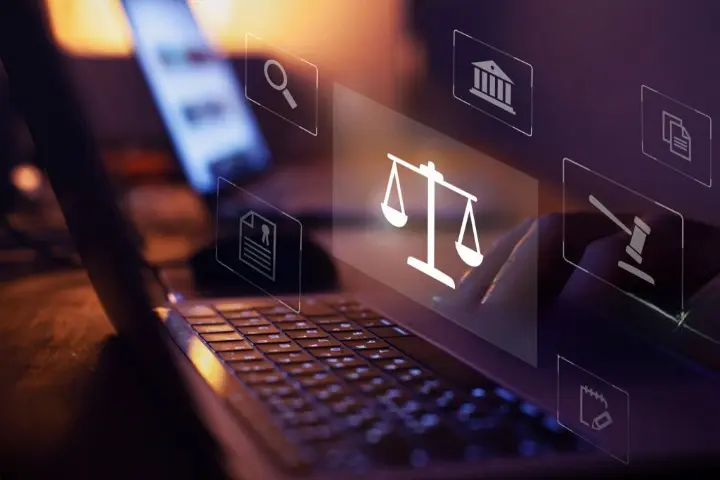After MetaRiley BloombergLaw: An In-Depth Analysis
The MetaRiley case has emerged as a groundbreaking event in the intersection of legal technology and corporate governance. Addressing the complex challenges of artificial intelligence, data privacy, and regulatory accountability, this landmark case has redefined the standards for ethical and legal practices in the tech industry. After MetaRiley BloombergLaw detailed analysis sheds light on the profound implications this case has on businesses and the legal profession, underscoring its significance in shaping the future of tech law and governance.
MetaRiley A Transformational Case in Legal Tech
MetaRiley stands at the crossroads of technology and law, setting precedents in areas such as artificial intelligence (AI) governance, data protection, and international regulatory frameworks. Unlike many isolated legal cases, MetaRiley has become a catalyst for broader discussions on the role of law in technological advancement. After MetaRiley BloombergLaw, the case has highlighted the urgent need for legal systems to adapt to the challenges posed by emerging technologies.
At its core, MetaRiley underscores the urgency of updating legal systems to address the ethical and operational challenges posed by emerging technologies. The implications are vast, ranging from stricter compliance requirements for businesses to new expectations for legal professionals.
One of the defining aspects of MetaRiley is its focus on transparency and accountability. For years, tech companies have operated in regulatory gray areas, but MetaRiley signals a turning point. Organizations must now demonstrate adherence to clear legal and ethical standards, particularly in their use of data and AI systems.
Bloomberg Law’s Analysis Key Themes
Bloomberg Law’s coverage of MetaRiley highlights several critical themes that are shaping after MetaRiley BloombergLaw era. These themes reveal not only the challenges businesses face but also the opportunities for innovation within legal and regulatory frameworks.
Regulatory Scrutiny Intensifies
A central takeaway from Bloomberg Law’s analysis is the increasing scrutiny that regulators are placing on technology companies. Governments around the world are implementing stricter rules to ensure companies are accountable for their actions, particularly regarding user data and AI technologies.
The MetaRiley decision reinforces the idea that regulators are no longer willing to tolerate vague commitments to privacy or ethics. Instead, they demand concrete policies and actions. This shift in attitude means that businesses must take compliance seriously, as failure to do so can result in significant legal and financial consequences.
The Role of Corporate Compliance
Bloomberg Law emphasizes the growing importance of robust compliance programs. Compliance is no longer something that businesses can afford to ignore. Instead, it must be integrated into every aspect of their operations.
Compliance programs are particularly vital in sectors heavily impacted by MetaRiley, such as technology, healthcare, and finance. These industries face unique challenges in aligning their practices with emerging legal standards. Businesses that proactively invest in compliance not only avoid legal risks but also build trust with stakeholders.
Impact on Businesses and the Tech Industry
The implications of MetaRiley extend beyond the legal profession to the broader tech industry. For startups, the case highlights the need to address compliance from the outset. While this may seem daunting, it is essential for long-term success.
Established companies face a different set of challenges. For Big Tech, the MetaRiley decision represents a wake-up call. These companies must demonstrate leadership by adopting transparent and ethical practices. After MetaRiley BloombergLaw suggests that this new era of regulation may actually spur innovation, as companies find creative ways to meet legal requirements while maintaining their competitive edge.
MetaRiley also impacts global operations. Multinational corporations must navigate a complex web of regulations that vary by region. Bloomberg Law notes that the case underscores the need for international cooperation to harmonize legal standards, particularly in areas like data privacy and AI governance. MetaRiley BloombergLaw analysis highlights these complexities and offers solutions to address them effectively.
Artificial Intelligence and Ethical Governance
AI is one of the most heavily impacted areas in the wake of MetaRiley. The case raises important questions about the ethical use of AI technologies, particularly in decision-making processes that affect individuals and communities.
Bloomberg Law’s analysis highlights the need for clear guidelines on AI governance. These rules ought to cover topics like accountability, openness, and bias. Companies must ensure that their AI systems are not only technically robust but also ethically sound. After MetaRiley BloombergLaw, this focus on explainability and ethical governance has become a central theme for regulators and organizations alike.
One of the most significant aspects of MetaRiley is its focus on explainability in AI. Regulators are increasingly demanding that companies provide clear explanations for how their AI systems work, especially when these systems are used in sensitive areas like hiring, lending, or healthcare. This emphasis on explainability aligns with broader trends in AI regulation globally after MetaRiley BloombergLaw.
Cross-Border Challenges in Regulation
The global nature of the tech industry adds another layer of complexity to the issues raised by MetaRiley. Businesses operating across multiple jurisdictions must contend with varying legal standards, creating significant compliance challenges.
Bloomberg Law points out that MetaRiley highlights the urgent need for international collaboration in regulatory matters. Harmonized regulations would provide clarity for businesses and ensure consistent enforcement of ethical standards. After MetaRiley BloombergLaw, international cooperation has become a critical focus, driving discussions on global policy alignment.
However, achieving global standardization is no small feat. Differences in cultural attitudes toward privacy and governance often result in divergent regulatory approaches. Despite these challenges, Bloomberg Law suggests that MetaRiley could serve as a model for international agreements on key issues such as data protection and AI governance.
Future Trends and Developments
MetaRiley is not just a moment in time; it is the beginning of a larger transformation in the relationship between technology and law. Bloomberg Law identifies several trends that are likely to shape the future:
Emergence of Legal Technology Solutions
As regulatory requirements become more complex, businesses are increasingly turning to legal technology (legal tech) solutions to manage compliance. These tools can help companies navigate the intricacies of laws like those outlined in MetaRiley, reducing the risk of costly errors.
Increased Public Awareness
MetaRiley has also brought greater public attention to the importance of ethical practices in technology. Consumers are becoming more aware of issues like data privacy and AI bias, and they are demanding greater accountability from companies. Bloomberg Law notes that this shift in public perception may influence regulatory priorities in the years to come.
Preparing for the Post-MetaRiley Era
Adapting to the changes brought about by MetaRiley requires a proactive approach. Bloomberg Law offers several recommendations for businesses and legal practitioners looking to navigate this new landscape effectively.
First, staying informed is crucial. Companies must closely monitor regulatory developments to anticipate changes and adapt accordingly. Regular updates from trusted sources like Bloomberg Law can provide valuable insights into emerging trends.
Second, engaging with experts is essential. Businesses should work with legal professionals who specialize in tech law and compliance. These experts can provide tailored advice and help organizations avoid potential pitfalls.
Lastly, spending money on staff training can have a big impact. Ensuring that employees understand the importance of ethical practices and regulatory compliance can reduce risks and foster a culture of accountability.
Conclusion
MetaRiley is a defining moment in the evolution of tech law and regulation. By addressing critical issues such as data privacy, AI governance, and international compliance, the case has set a new standard for accountability in the technology industry. After MetaRiley BloombergLaw analysis provides a comprehensive guide to understanding these changes and their implications. For businesses, the message is clear adapting to the post-MetaRiley world is not optional. Companies that embrace compliance, invest in ethical practices, and stay ahead of regulatory trends will not only mitigate risks but also position themselves as leaders in this new era.














Post Comment